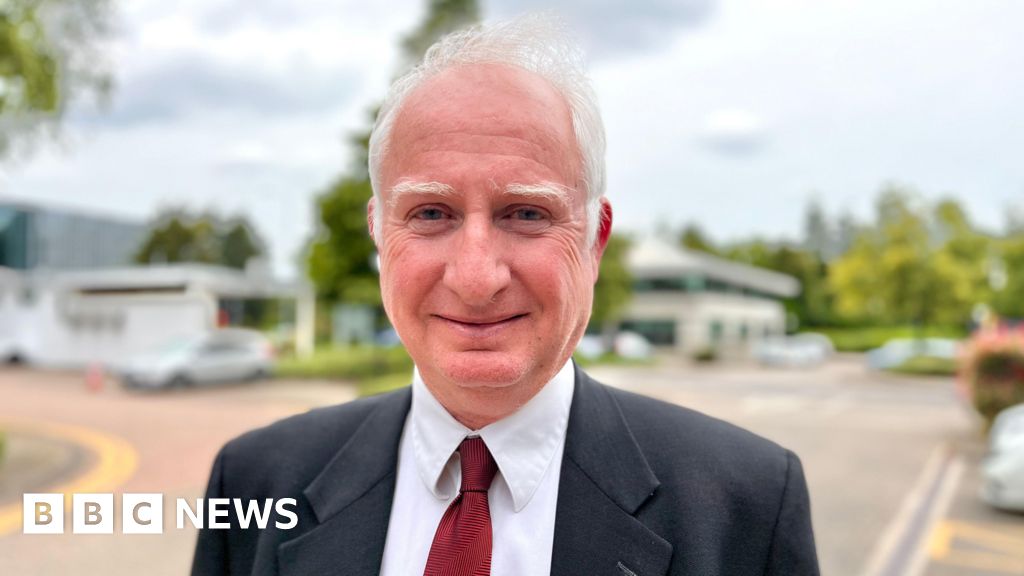ARTICLE AD BOX
The sports ministers of five European countries have urged broadcasters and Fifa to "quickly reach an agreement" on unsold Women's World Cup TV rights, with only 50 days until it begins.
The UK, France, Spain, Germany and Italy said it was their responsibility to "fully mobilise all stakeholders".
The World Cup, co-hosted by Australia and New Zealand, starts on 20 July.
In a joint statement, the five countries "acknowledged with concern" that an agreement was not in place, but said they are "confident" Fifa and broadcasters' will "find a common path".
The statement was signed by the minister responsible for sport in those countries, including UK Culture Secretary Lucy Frazer.
This month Infantino threatened not to broadcast the event in the UK, France, Spain, Germany and Italy, describing their "disappointing" TV rights offers as a "slap in the face" of the players and "all women worldwide".
He said European broadcasters had offered world football's governing body $1m-$10m (£800,000-£8m) for the rights, compared with $100m-$200m for the men's World Cup.
Rights offers for previous tournaments were bundled together with other events, including the men's World Cup, but Fifa has now separated the bidding process.
Infantino said two weeks ago that discussions were "moving".
Former Fifa Council member Moya Dodd has criticised Infantino's stance, saying Fifa has historically undervalued the women's game and it saying it was "a bit rich to scold broadcasters for underpaying".
The BBC held the sole broadcast rights in the UK for the 2019 Women's World Cup but shared the rights for the recent men's World Cup in Qatar with ITV.
It has widely been reported that the BBC and ITV will share broadcasting rights for this summer's tournament, although no announcement has been made.
A BBC Sport spokesperson said it did not comment on sports rights negotiations.
Last year the Women's World Cup and European Championship were added to the 'crown jewels' of British sporting events, which require free-to-air coverage.
Infantino said Fifa has trebled the total prize money to $152m (£123m) compared with the 2019 Women's World Cup in France and reiterated its desire to have equal pay for the men's and women's World Cups by 2026 and 2027, first announced at its annual congress in March.
According to Fifa's data, 1.12 billion people watched the 2019 Women's World Cup in France, a record for a women's tournament.
Almost half of total viewing hours were from Europe, with the average viewing time of 4.14 hours per person across the whole tournament more than double the average of the rest of the world.
That could be partly attributed to the favourable time zone and that seven of the eight quarter-finalists were European, with England reaching the semi-finals before losing to eventual winners the United States.
Kick-off times for the 2023 World Cup are less favourable, ranging from 01:00 to 12:00 BST, although England's three group games start between 09:30 and 12:00 and the final is scheduled to kick off at 11:00.
A record global audience of 365 million watched last summer's Euro 2022 in England, with 50 million tuning in for England's victory over Germany in the Wembley final.
Research from the Women's Sport Trust (WST) revealed that the amount of time the average UK viewer spent watching women's sport in 2022 was more than double the 2021 figure.
Former England and Arsenal captain Faye White told the BBC's Sportsday she hoped the situation was resolved "sooner rather than later".
She added: "Is it Fifa trying to raise the standards of the game and expectations now that people are watching women's football all around the world and in Europe?
"Obviously the game is growing at such a rate that it's just understanding what different federations and TV broadcasters put weight on women's football.
"Fifa have a responsibility to show the game and make sure that it's out there for everyone to see and get this sorted really."

 1 year ago
21
1 year ago
21








 English (US)
English (US)